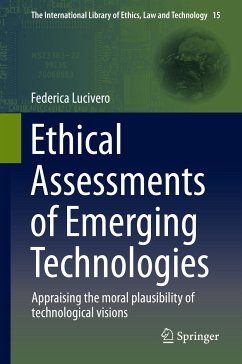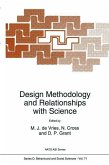This book systematically addresses the issue of assessing the normative nature of visions of emerging technologies in an epistemologically robust way. In the context of democratic governance of emerging technologies, not only it is important to reflect on technologies' moral significance, but also to address their emerging and future oriented character. The book proposes an original approach to deal with the issue of "plausible" ethical evaluation of new technologies. Taking its start from current debates about Technology Assessment, the proposed solution emerges as a combination of theoretical and methodological insights from the fields of Philosophy of Technology, Science and Technology Studies and a normative justification based on pragmatist ethics. The book's main contribution is to engage a diverse and interdisciplinary audience (ethicists, philosophers, social scientists, technology assessment researchers and practitioners) in a reflection concerning the epistemological challenges that are associated to the endeavour of appraising the moral significance of emerging technologies in the attempt of democratically governing them. It brings together concepts and methodologies from different disciplines and shows their synergy in applying them to two specific case studies of emerging biomedical technologies.
Dieser Download kann aus rechtlichen Gründen nur mit Rechnungsadresse in A, B, BG, CY, CZ, D, DK, EW, E, FIN, F, GR, HR, H, IRL, I, LT, L, LR, M, NL, PL, P, R, S, SLO, SK ausgeliefert werden.









